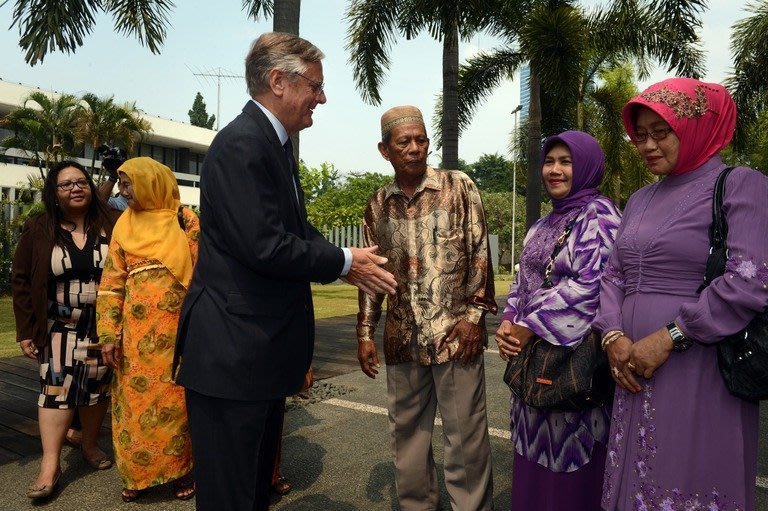
As children of some of the men who were massacred in summary executions looked on, Dutch ambassador to Indonesia Tjeerd de Zwaan offered a state apology during a ceremony at the country's embassy in Jakarta.
"On behalf of the Dutch government, I apologize for these excesses," said the ambassador.
"The Dutch government hopes that this apology will help close a difficult chapter for those whose lives were impacted so directly by the violent excesses that took place between 1945 and 1949."
He was referring to the years of the Indonesian war of independence, when the sprawling archipelago nation sought to shake off Dutch colonial rule.
The Hague had previously said sorry to the relatives of those in particular cases but it has never before offered a general apology for all summary executions.
Last month the Dutch government also announced that it would pay 20,000 euros ($26,600) to the widows of those killed.
However, 81-year-old Shafiah, whose father and brother were killed in an attack by Dutch soldiers on her village in Bulukumba district on Sulawesi island, told AFP the Netherlands had not gone far enough.
"The Dutch government must not only compensate the widows but the children as they also suffered from the loss of their fathers," said Shafiah, who like many Indonesians goes by one name and was speaking from her home village.
She added that her mother died nine years ago.
Her relatives were killed in a brutal military campaign in 1946 and 1947 on Sulawesi, in central Indonesia, and special attention was given to the atrocity on Thursday.
The Dutch government in August compensated 10 women whose husbands were executed by its army in the campaign, and their children were those present at the Jakarta ceremony.
The women themselves were too old and frail to travel to the capital but the ambassador said he planned to fly next week to Sulawesi to meet them.
In one of the worst atrocities committed by the Netherlands in Indonesia, Dutch troops carried out summary executions in a series of villages over three months in a bid to wipe out resistance to colonization.
Some in Indonesia have claimed the death toll was as high as 40,000 but historical studies have put it at several thousand.
Shafiah said she remembered vividly troops entering her village and setting fire to houses before dragging off men and boys to be killed.
"I still remember how villagers were screaming and crying as they watched their houses being burnt down. We were all helpless," she said.
In 2011 the Dutch government also offered a public apology and compensation for victims of summary executions which took place at Rawagede, on the main island of Java.
The Netherlands colonized the archipelago that is modern-day Indonesia in the 19th century, and named it the Dutch East Indies.
Japan occupied the archipelago during World War II and took apart much of the Dutch colonial state, but left when Tokyo surrendered at the end of the war in 1945.
Indonesia then declared independence but the Netherlands attempted to reassert control, sparking the war of independence. The Netherlands finally recognized Indonesia's independence in 1949. - GMA News
